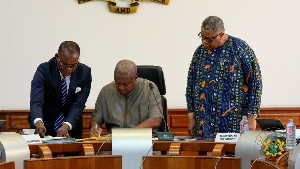After being in office for 38 days, Kwasi Kwarteng, the British-born politician of Ghanaian parentage was sacked by Prime Minister Liz Truss as the Chancellor of the Exchequer. The dismissal was after Kwarteng presented a mini-budget which resulted in financial turbulence and revolt from Conservative Party lawmakers. While presenting the mini-budget on 23 September, an eye-watering £45 billion in tax cuts alongside an energy relief plan projected to cost £60 billion over the next six months was announced by Kwasi Kwarteng. This, according to various media reportage was a huge departure from the fiscal policy of the Johnson government, which had planned tax rises to pay for health and social care and to manage the post-Covid deficit. Kwarteng claimed his ambitious plans would drive growth and reduce inflation. The financial markets disagreed: in the days after his announcement, lenders pulled mortgage packages, the pound hit a record low against the dollar, and the Bank of England started buying bonds at ‘an urgent pace’ to calm the markets and stop pension funds going bust. In a high-risk strategy designed to revive Britain’s stagnant economy, the British of Ghanaian descent announced more than £400bn of extra borrowing over the coming years to fund the biggest giveaway since Tony Barber’s ill-fated 1972 budget. The Guardian reported that the Conservative MP said tax cuts worth more than £55,000 annually to someone earning £1m a year were part of a new direction for the economy and were designed to help boost growth to 2.5% a year. Some Labour MPs described them as a “class war”. The Treasury admitted there were no forecasts for the impact of the measures on growth and the gamble received a hostile reception not just from the markets and opposition politicians, but from economic think tanks and many Tory MPs, some of whom were aghast. Watch some GhanaWeb TV programmes below.
General News of Saturday, 15 October 2022
Source: www.ghanaweb.com













